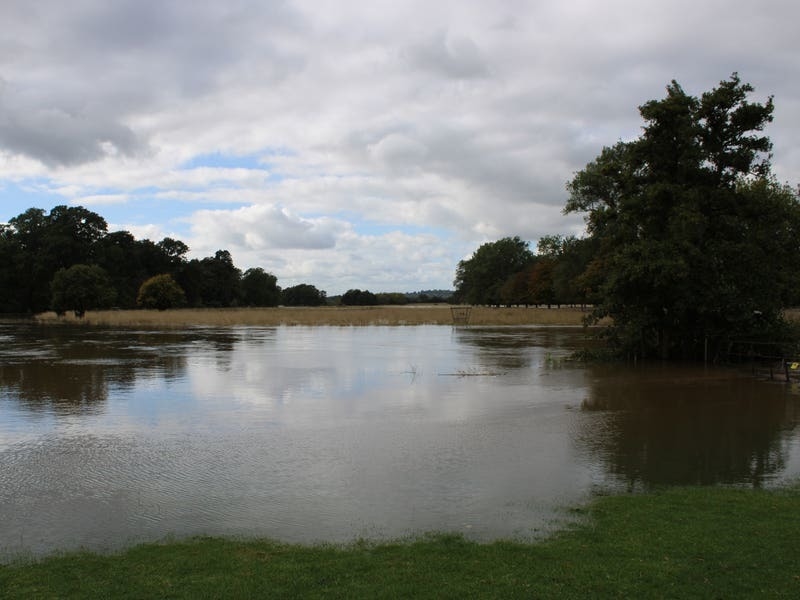
Brig. Gen. Anthony McAuliffe was in a tough spot 80 years ago this month.
The handful of American soldiers he commanded were ordered to hold a small but critical crossroads village in Belgium. With Christmas just days off, many of his men were homesick. The Lowlands were being blasted by the coldest temperatures in decades and covered by nearly a foot of freshly fallen snow.

Oh, and four German soldiers were demanding to meet him, too. They don’t instruct you on how to handle a situation like that at West Point, where McAuliffe had graduated in the Class of 1918. Nor do they teach the one-word response he gave that turned near disaster into inspiration and motivation for his troops.
Here’s how it happened. As 1944 drew to a close, Adolf Hitler’s Third Reich was crumbling. The Soviets were advancing from the East, and after June’s successful D-Day invasion, U.
S., British and Canadian troops had slogged their way across France and were creeping ever closer to the Rhine in the West. Hitler opted for one last roll of the dice, a military Hail Mary maneuver where he would use every available Panzer unit he could scrounge up in a massive surprise offensive — conducted during bleak winter weather that would keep warplanes grounded — in a frantic push to cut the Allied forces in two and capture the crucial port of Antwerp.
It was sheer desperation in the extreme. We know this campaign today as the Battle of the Bulge, taking its name from the massive bulge the German attack created in the Allied lines. In the opening phase of that campaign, capturing little Bastogne was vital to German chances of success.
Several key roads converged there. The Nazis had to hold it to push on to the Atlantic. McAuliffe was determined not to let that happen.
Though greatly outnumbered, the 28th Infantry Division bravely held out, allowing reinforcements, including the legendary 101st Airborne Division, to arrive. They weren’t enough. On Dec.
20, the Germans completely surrounded Bastogne. With air cover grounded and the town now encircled, no more help would be heading its way. At 11:30 on the morning of Friday, Dec.
22, two German soldiers holding white flags accompanied by two German officers stepped out of the woods. “I want to see the commanding officer of this sector,” one officer said in English to some dumbfounded GIs. Leaving the enlisted men behind, the officers were blindfolded and taken on a zig-zag trip to the closest command post.
There, a typed message was handed over. To the American Commander, ..
. The U.S.
A. forces in and near Bastogne have been encircled by strong German armored units. .
.. There is only one possibility to save the encircled U.
S.A. troops from total annihilation: that is the honorable surrender of the encircled town.
The German Commander The document gave two hours to think it over. The message was dispatched to HQ. McAuliffe, roused from a sleeping bag, groggily misunderstood it.
“They want to surrender?” he asked. “No, sir; they want us to surrender,” a staff officer corrected. McAuliffe took the paper, scanned it, then grumbled, “Us, surrender? Aw, nuts!” as he threw it on the floor.
Then he went on about his business. The command post called back a while later, reminding the brass that the two German officers were still cooling their heels and awaiting a reply. “Well, what should I tell them?” McAuliffe asked.
“What you said initially would be hard to beat,” one officer suggested. The others agreed. And so a short while later, the two antsy German officers were handed a single page with the following typed on it: December 22, 1944 To the German Commander, NUTS! The American Commander Later that afternoon at their headquarters, the Germans were flummoxed.
They translated the word to mean the single-seed fruit. What did nuts have to do with their demand? None of them had ever heard the slang version meaning “crazy” or “insane.” And so the fighting resumed.
The Germans never captured Bastogne. McAuliffe’s men hung on in subzero weather for four more agonizing days until the lead elements of Gen. George S.
Patton’s tanks arrived on the 26th. They were inspired to keep fighting by their commander’s humorous contempt for the call to surrender. Less than four months later, Hitler was dead, and the Third Reich was out of business.
And McAuliffe, who retired from the Army as a four-star general in 1956, carried for the rest of his days as an affectionate nickname the same thing he had told his enemy: “Nuts.”.










